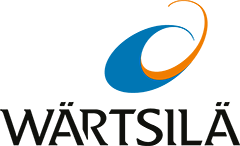SMM briefing to tackle whether there's more to efficiency than technology
Can next-generation technology alone lead the push for greater efficiency in shipping? Will our tech entrepreneurs be able to tackle the maritime industry’s environmental protection and safety challenges without the help of other disciplines? Where are tech’s most obvious advantages and where are its shortcomings?
There’s no better place to debate the contribution of technology to the shipping sector than SMM, the global showcase for our maritime future. This is where the start-ups walk tall among the traditional manufacturers and suppliers. New ideas are welcomed, especially at a time when the phrase “digital disruption” has become a cliché.
Surely at SMM the role of new tech is obvious. Not only in equipment to reduce fuel consumption by a few additional percentage points, but also in concepts that hold out the prospect of total transformation of shipping. Yet while it might appear obvious in the tech clusters of northern Europe, it’s far less obvious in the Americas, in Asia Pacific, and in labour supplying nations such as the Philippines, Myanmar, and Ukraine. It’s not even obvious among the shipbuilding powerhouses of Japan, South Korea, and China.
“It is now accepted that the concept of “autonomous” does not necessarily mean “unmanned”; that has implications for technology providers”
The significance of the human element, the seafarer, in helping to drive further advances in efficiency must not be overlooked. Over the past year there has been an acceptance that the concept of “autonomous” does not necessarily mean “unmanned”. That has implications for the technology providers. Artificial intelligence won’t immediately replace the seafarer on the bridge and in the engine room, perhaps not even for a decade ahead. But shipping is likely to move up the levels of autonomy, and seafarer training will need to adapt.
Will the human element evolve to work alongside the development of technology? If so, what levels of training will be needed, what new skills will be required?
“Few would vote for more regulation but new technology will generate fresh regulation or, at least, an updating of what’s already in place”
And what of a third element in the trinity of maritime efficiency, regulation? Might the industry regulate itself to greater efficiency? This element has been in the news over the past year with decisions on ballast water treatment, low sulphur fuels, and greenhouse gases. The howls of anguish from certain sectors have more to do with tight timelines for compliance than with any doubt about the need for improved environmental consciousness. Few outside the legal community would vote for more regulation but it is widely accepted that new technology will generate fresh regulation or, at the very least, an updating of what’s already in place.
Proponents of each of the three elements believe theirs is the key to greater efficiency, with the other two offering valuable support. In reality, as will be discussed at a Lloyd’s List Business briefing at SMM, it’s not so much that one element is more important than the others, rather that greater efficiency lies at the point where all three complement one another.
Lloyd’s List has already heard from speakers at Singapore Maritime Week, Gas Shipping in Houston, and Posidonia in Piraeus that next-generation technology works best where there’s buy-in from the seafarers who will be required to use it, and from regulators who seek to apply a level, global playing field. The human element benefits most when seafarers and shoreside teams stand alongside technology as an enabler in decision-making, and understand that compliance with the spirit of regulation goes much further than mere box ticking.
And regulation at international level is the best route to safety of the human element, and the best way to safeguard the environment when technology is at its most dynamic.
The Lloyd’s List Business briefing recognises that the element of technology is vital to greater shipping efficiency, and argues that this will be enhanced by exploring the overlap between tech and the human element, and between tech and regulation. Where is the sweet spot that brings efficiency to our industry? Is it the same for all vessel types and sizes, and for all regions of the world? Should there be a greater emphasis on technology in Germany, on the human element in Manila, and on regulation in London?
Join Lloyd’s List and sponsor Wärtsilä for a speaker-led discussion, moderated by Chief correspondent Richard Clayton, on Thursday September 6th at 2:30pm in the Marseille Room at Hamburg Messe. There will be an opportunity to comment on speakers’ views and ask questions during the discussion.
Is next-generation tech the digital disruption the industry has needed for so long, or is it just one of the three elements of efficiency that combine to create a cleaner, greener, and smarter maritime industry?

